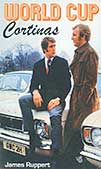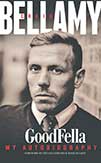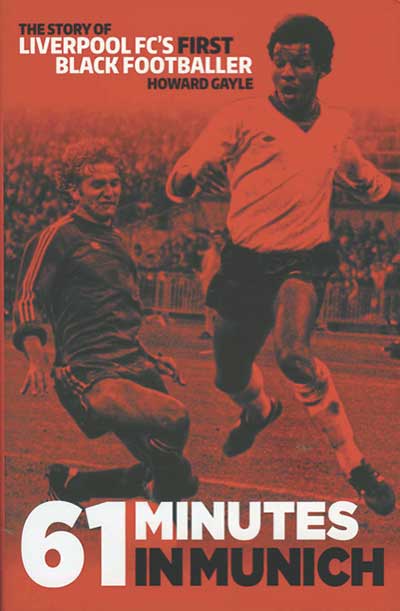Search: 'Lee Hughes'
Stories
Scrap the Checkatrade Trophy and introduce retrospective punishment for diving – more of our writers on what they want to see in 2017
 by James Ruppert
by James Ruppert
Foresight Publications, £9.99
Reviewed by Tom Lines
From WSC 329 July 2014
In 1970 the Ford Motor Company loaned every member of the England World Cup squad a car ahead of the forthcoming Mexico World Cup. With the exception of Jack Charlton – who requested a Ford Zodiac because he needed a bigger boot for his fishing tackle – they each received a Cortina 1600E. This is the story of how motoring journalist James Ruppert sets out to track down the 24 original “World Cup Cortinas”.
Except it isn’t. That element takes up a single chapter. The rest of the book involves something far more remarkable: someone who confesses to knowing very little about football writing quite a long book about football. Alarm bells begin to ring as early as the contents page (“it’s end-to-end stuff!”) while by the introduction the author appears to be having a full-blown crisis of confidence, admitting: “If you like football, there isn’t nearly enough detail, informed comment, or analysis about the game. If you like cars, well there is far too much football not nearly enough nitty gritty about camshafts… I’m not sure who will enjoy it really.”
The problem is that while Ruppert’s quest is a perfectly good idea for an article or photo essay there is nowhere near enough material for a book. His solution is a 200-page digression – a “social history” of football viewed through the cars that players drive. His conclusion? As footballers became better paid they could afford more expensive cars.
This might not be such an issue if the book was engagingly written but the prose is pitched awkwardly between lads’-mag insouciance and the nostalgic banality of a Saint & Greavsie annual. So while readers will be unsurprised to discover that George Best had “brooding good looks” but was “deeply flawed”, some bits simply make no sense at all. “Mark Hughes was a great leader on the pitch and he certainly needed a commanding one off it, hence the Range Rover Vogue SE.” Eh? At one point he questions the reliability of a source because they spell Nobby Stiles’s name incorrectly. In a book that introduces us to “Cristano Renaldo” that takes a certain amount of nerve.
Occasionally the author moves disastrously into the world of opinion. So we learn that “if fate had not intervened it is more than likely that Duncan Edwards would have been part of an England victory in the 1962 World Cup, led them to the title again in 1966 and made it a hat-trick in 1970”. Even this starts to sound like a trenchant insight compared to his baffling description of the “supremely talented” Jody Morris.
As if to reinforce the lightweight nature of the concept, Ruppert manages to sell it to The One Show as a five-minute TV feature. In the big finale, Franny Lee is reunited with his restored car in front of an expectant camera crew, before spoiling things by admitting that it was actually his wife who drove the Cortina because he had a Jag. It’s a fitting end to a book that is fatally underpowered from start to finish.
 My autobiography
My autobiography
by Craig Bellamy
Sport Media, £18.99
Reviewed by Rob Hughes
From WSC 320 October 2013
As his old boss Mark Hughes points out in the foreword to GoodFella, Craig Bellamy has a lot of strengths but diplomacy isn’t one of them. It’s an approach that’s landed him in all shades of bother throughout a nomadic career, from the “nutter with a putter” spat with John Arne Riise to brawling with bouncers outside nightclubs. It’s all laid bare here, though the real selling point of this highly engrossing memoir (written with the Daily Mirror‘s Oliver Holt as guide) is Bellamy’s frank and often painful honesty. Especially when it comes to himself.
It’s unflattering stuff. Here is a man utterly consumed by football, driven by insecurity and a will to succeed that frequently veers into self-admonishment. Such intensity, he says, turned him into “the human snarl”. Dogged by repeated knee injuries, he’s sulky and uncommunicative, especially with his wife and kids. He admits to infidelities. And during his final days at Newcastle he becomes obnoxious and arrogant.
The watershed moment comes in November 2011, with the suicide of his idol and close friend Gary Speed. Cue a rigorous stock-take of his life and destructive personality, followed by therapy with British Olympic psychiatrist Steve Peters. Bellamy finally allows himself to let go of his rage. By then it’s too late to save his marriage but what emerges is a more forgiving, open and ultimately contented character.
Not that Bellamy was ever a footballing pariah – there are plenty of former team-mates who vouch for him both as a human being and professional – but GoodFella doesn’t hold back when it comes to those he disliked. Graham Poll comes across as a self-serving “celebrity ref”, starstruck by David Beckham and Patrick Vieira. And while Bellamy cites Bobby Robson as the best manager he ever worked with, his successor Graeme Souness is the iron fist who came in looking for a fight.
Both Rafa Benítez and Roberto Mancini are portrayed as joyless control freaks, the former an “unsmiling headmaster” with no room for spontaneity or sentiment, an attention-seeking dictator. City’s Brazilian folly Robinho is appallingly lazy, both in training and on the pitch, and a spoilt man-child when Bellamy confronts him about it.
Perhaps the most damning verdict is reserved for one-time Newcastle strike partner Alan Shearer, who is seen as a self-absorbed egotist with a yellow streak. Bellamy gleefully recounts the England man’s reluctance to leave the pitch after a game against Manchester United, knowing that Roy Keane (who’d been sent off for a Shearer-related fracas) was waiting in the tunnel. And after hearing he’d supposedly dissed him to others after moving on to Celtic, Bellamy texts Shearer directly after Newcastle’s lame FA Cup semi-final defeat in 2005: “Fucking typical of you. Looking at everyone else yet again. You need to look at yourself instead.” Shearer threatens to knock him out next time he’s in Newcastle.
All of this serves as a thoroughly refreshing antidote to the usual blandness that makes for football biographies. But GoodFella is far more substantial than just a series of delicious anecdotes. It feels like a rich confession from one of the game’s most misconstrued personalities.
